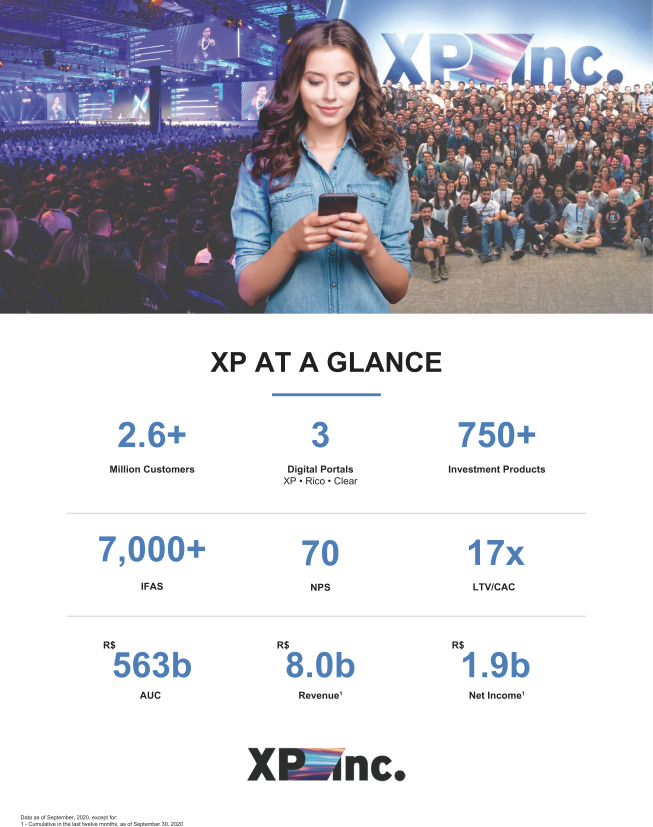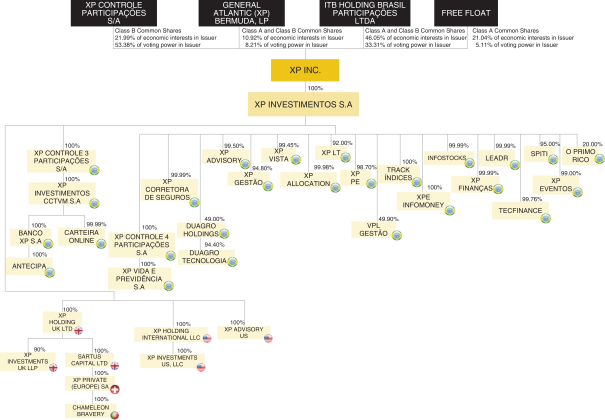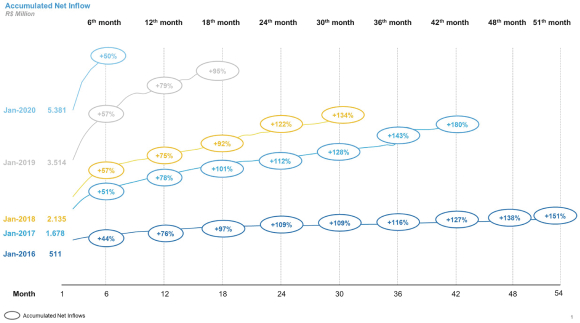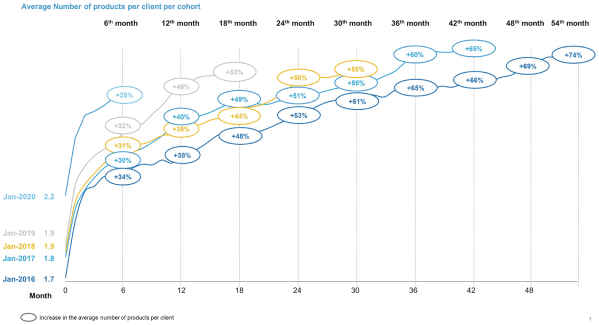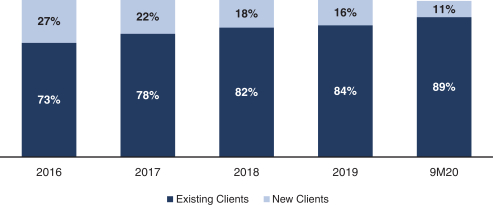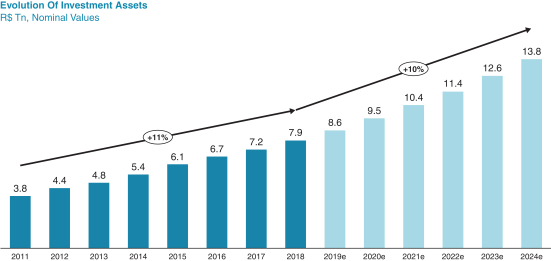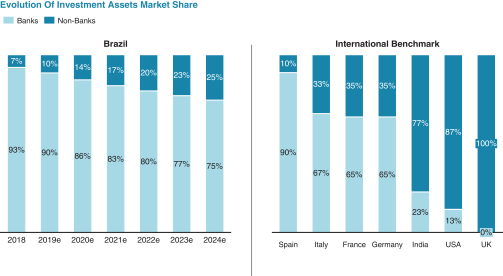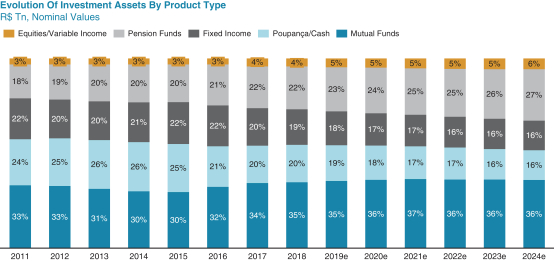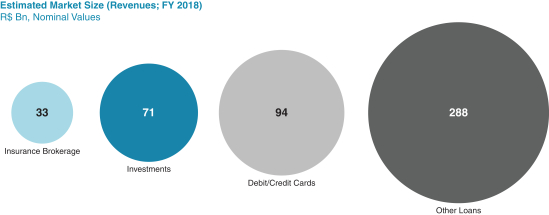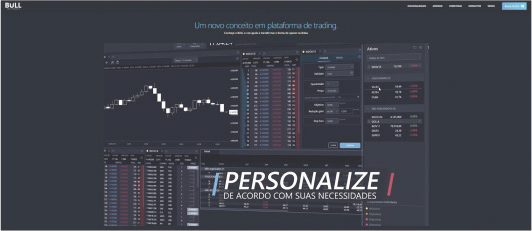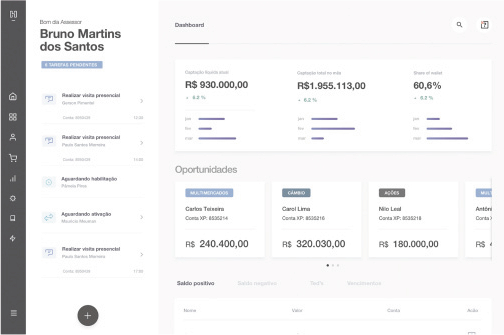1976, as amended, or Law No. 6,385/76, the distribution and issuance of securities in the market, trading of securities and settlement and/or clearance of securities transactions all require prior authorization by the CVM. The banking and capital markets regulatory framework in Brazil is further supplemented by the regulation issued by CMN, CVM and the Central Bank, and self-regulation policies, such as those issued by various associations, over-the-counter organized markets and securities exchanges, that govern their members and participants, (for example, B3, the Brazilian Association of Financial and Capital Markets Entities, or ANBIMA and the Brazilian Association of Investment Analysts, or APIMEC). The incorporation and operation of financial institutions in Brazil depend on prior authorization from the Central Bank (under Decree No. 10,029, of September 26, 2019, the Brazilian Executive Branch granted authority to the Central Bank to approve foreign investments in financial institutions. Such decree was further regulated by Circular No. 3,977 of January 22, 2020), and are also subject to oversight from the CVM when they participate in the Brazilian capital markets (such as XP CCTVM).
Financial institutions in Brazil can operate under various forms—such as commercial banks, investment banks, credit, financing and investment companies, cooperative banks, leasing companies, securities brokerage companies, securities distributor companies, real estate credit companies, mortgage companies, among others—all of which are regulated by different rules issued by the CMN, the Central Bank, and, if such financial institutions participate in capital markets activities, the CVM. In addition, like financial institutions, stock exchanges are also subject to CMN, the Central Bank, and the CVM approval and regulation as well in accordance with Law No. 4,728/65.
Pursuant to Banking Law, CMN Resolution No. 4,122 of August 2, 2012, as amended, or CMN Resolution No. 4,122, and CMN Resolution No. 1,655 of October 26, 1989, financial institutions must seek approval from the Central Bank, and, in certain cases, the CVM when appointing managers (including directors, officers and members of certain statutory boards, such as fiscal councils). According to Law No. 4,728/65, for securities brokerage firms (such as XP CCTVM), managers are subject to further restrictions and are prohibited from working for or fulfilling any administrative, advisory, tax or decision-making positions at entities listed on the Brazilian stock exchange. In addition, managers of XP CCTVM are prohibited from filling managerial functions in other brokerage firms authorized to carry out foreign exchange transactions pursuant to CMN Resolution No. 1,770, of November 28, 1990.
According to CMN Resolution No. 2,723 of May 31, 2000, with the exception of (1) equity interests typically held in proprietary investment portfolios by investment banks, development banks, development agencies (agências de fomento) and multiservice banks (bancos múltiplos); and (2) temporary equity interests not categorized as permanent assets (ativos permanentes) and not subject to consolidation by the financial institution, financial institutions must receive prior authorization from the Central Bank to hold capital interest of other companies. In order to receive authorization, the financial institutions’ activities must justify the need to hold capital interest for other companies; however, should the financial institutions participate in underwriting activities falling under certain exceptions established by the CMN, they will not need to provide justification.
In addition, as a principle, according to the Banking Law, Brazilian financial institutions are banned from granting loans or cash advances to their managers (officers, directors, and members of advisory boards, as well as their relatives). Certain exceptions to such restrictions are set forth in CMN Resolution No. 4,693 of October 29, 2018.
Furthermore, XP CCTVM and XP VP are required to maintain certain levels of regulatory capital, as determined by the Central Bank and SUSEP, respectively. For further information, see note 34 to our audited consolidated financial statements and note 30 to our unaudited interim condensed consolidated financial statements included elsewhere in this prospectus.
123

